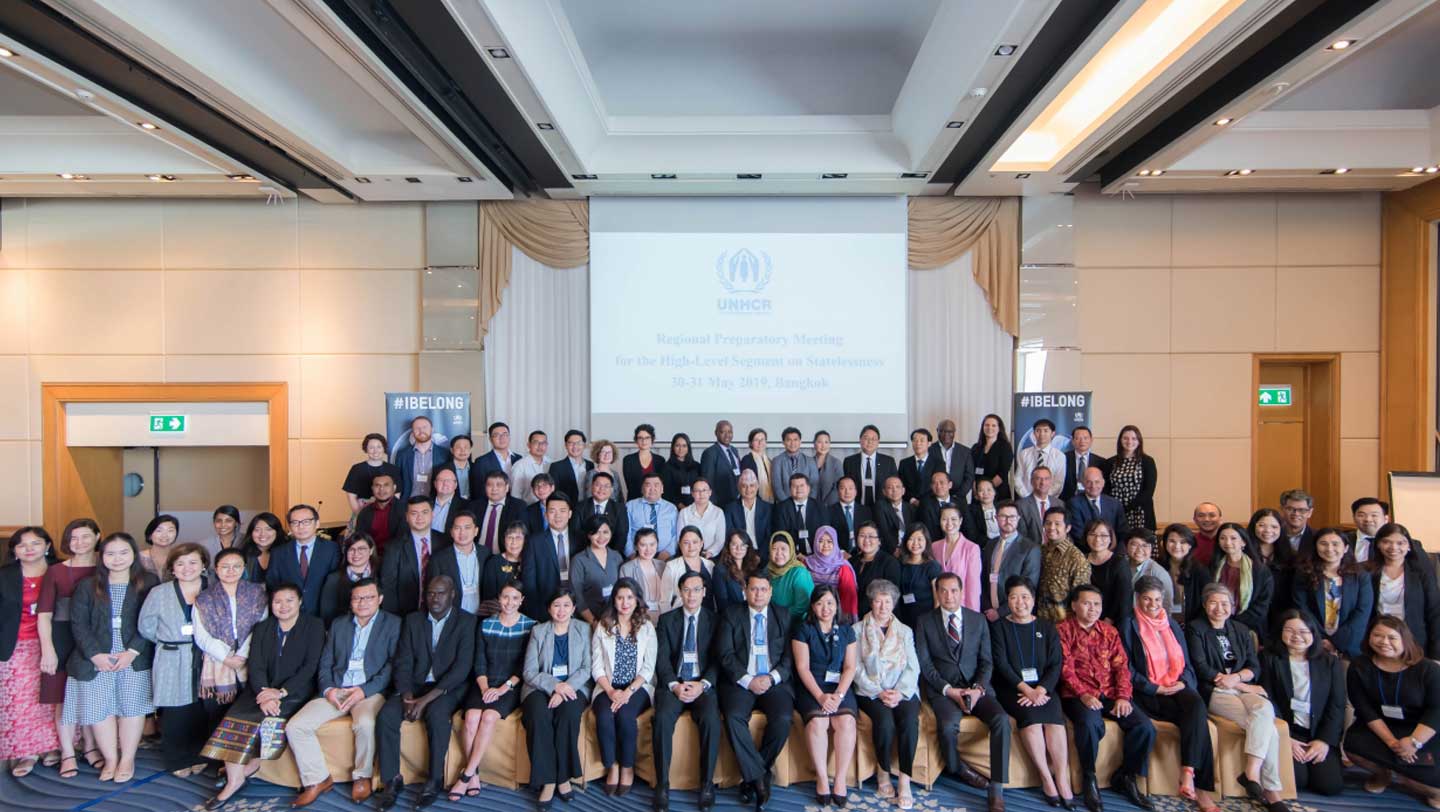The commitments were made during a two-day meeting in Bangkok, hosted by UNHCR and supported by Royal Thai Government.

Asia governments commit to take further action to tackle statelessness at regional meeting in Bangkok.
Government officials from countries in the Asia and Pacific region have made commitments to take further steps aimed at preventing and reducing statelessness. The commitments were made during a two-day meeting in Bangkok, hosted by UNHCR, the UN Refugee Agency, and supported by Royal Thai Government.
The event, which brought together officials from 16 governments, was a chance for states to review progress already made, share best practices and successes, including cross-border collaborations, and discuss challenges and initiatives being undertaken.
“One of the key things that I was inspired by today was that several states have said that they will not allow children on their territory to be stateless any more”, said UNHCR’s Special Advisor on Statelessness, Carol Batchelor, who attended the event.
The Bangkok meeting comes almost halfway through UNHCR’s 10-year #IBelong Campaign to End Statelessness and a few months before a high level global meeting on ending statelessness, to be held in Geneva in October.
One of the speakers included a formerly stateless teenager, 18 year old Namphung Panya, who received Thai citizenship just a few weeks earlier. “It was one of the proudest moments of my life”, said the teenager, who was able, a few days later, to travel to the United States to compete in a student science and engineering fair. She is also now able to attend university.
Over the last five years, tens of thousands of people in Asia, who formerly had no nationality, have been granted citizenship due to concerted efforts by governments.
People who are not formally recognised as a national of any State under the operation of its laws are considered stateless. Being denied a legal identity causes suffering from cradle to grave.
People who are stateless are often denied basic rights. They can face great difficulties accessing education, health care and job opportunities all through life. In some cases, they are not able to register marriages, move freely, own property, or work. They may even be denied an official burial and a death certificate.
Newsnote:
For more information about UNHCR’s #IBelong Campaign https://www.unhcr.org/ibelong/
Media contacts:
In Bangkok: Caroline Gluck, [email protected], +66 81 827 0280
Jennifer Harrison, [email protected], +66 822 908 831
Share on Facebook Share on Twitter